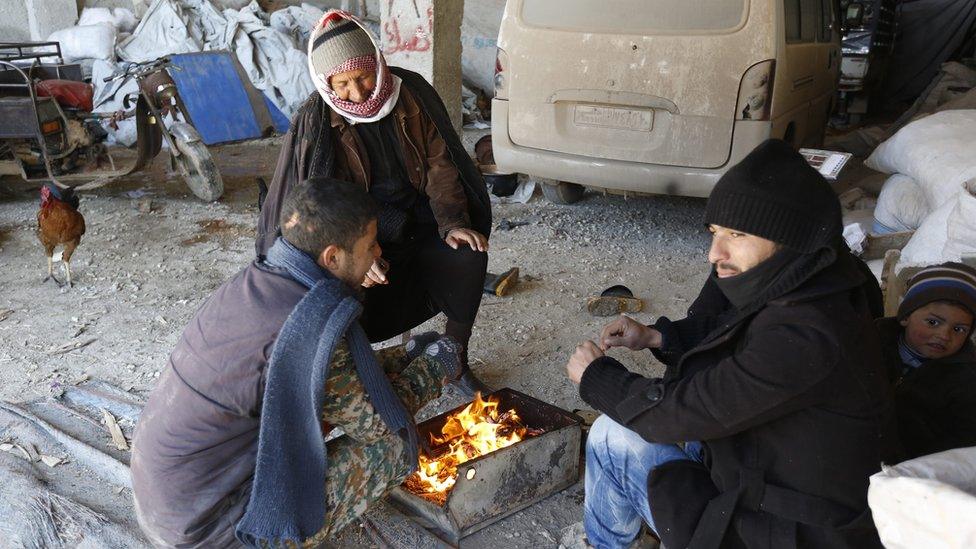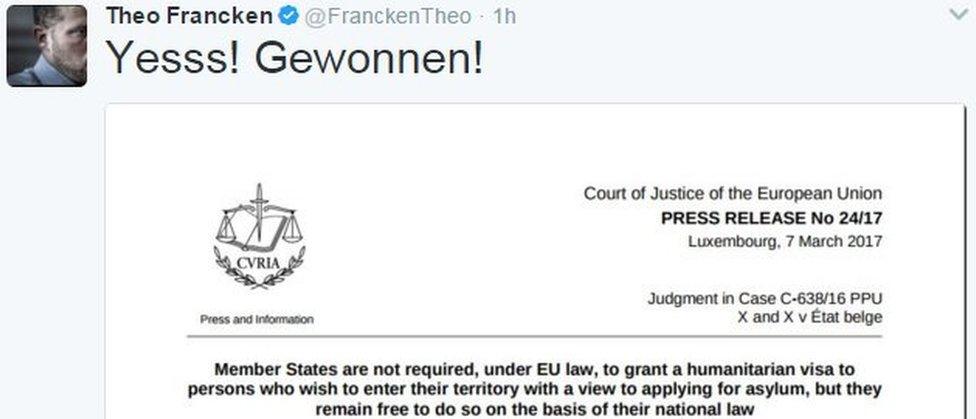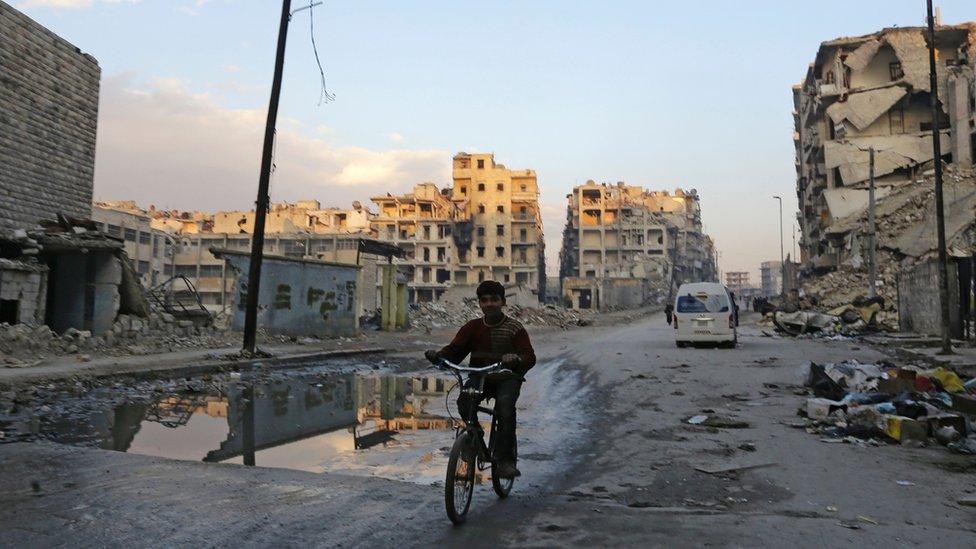Europe court backs Belgium's rejection of visa to Syrians
- Published

Syria's biggest city Aleppo was for years the focus of fighting that finally ended in December
The European Court of Justice (ECJ) has backed a Belgian decision to refuse a humanitarian visa to a Syrian family.
The family of five, from Aleppo, had applied for a 90-day visa at the Belgian embassy in Lebanon, so they could later seek asylum in Belgium.
Initially, the Court's top adviser, external said Belgium was wrong to deny them a visa.
Had the Court agreed, the decision would have potentially opened up a new path to EU countries for migrants trying to reach Europe.
But unusually the Court rejected the Advocate General's advice and decided that EU law did not require member states to allow visas to people whose ultimate aim is asylum, external.
The ruling is a significant victory for Belgian migration minister Theo Francken who has argued that EU member states alone should have the power to issue visas.

Belgium's migration minister hailed the victory on social media, saying: "Yes! We've won!"
Common sense had prevailed, he said.
"NGOs wanted to open EU borders in embassies abroad," but the Court had been very clear that humanitarian visas were a national competency, he added.
He praised the 13 EU countries as well as the European Commission for supporting Belgium in the case.
When the family applied for a short-stay visa in October 2016, they said one of them had been kidnapped by an armed group and beaten and tortured before being released in exchange for a ransom. They also argued that as Orthodox Christians, they were at risk of persecution because of their religious beliefs.
But the ECJ ruled that if non-EU citizens were allowed to seek visas for international protection in the country of their choice, it would undermine the bloc's system for deciding which country was responsible.
"I find it very intriguing that this ruling is quite opposite to the opinion of the advocate general, who said humanitarian grounds should be taken into account," said Carolus Grutters, senior researcher at the Centre for Migration Law at Radboud University in the Netherlands.
Describing the Court's decision as disappointing, he argued that the original opinion had the potential to put migrant smugglers out of work because asylum seekers would have headed for EU embassies rather than boats from Libya or Turkey. "Now they will stay in business."
- Published7 February 2017
